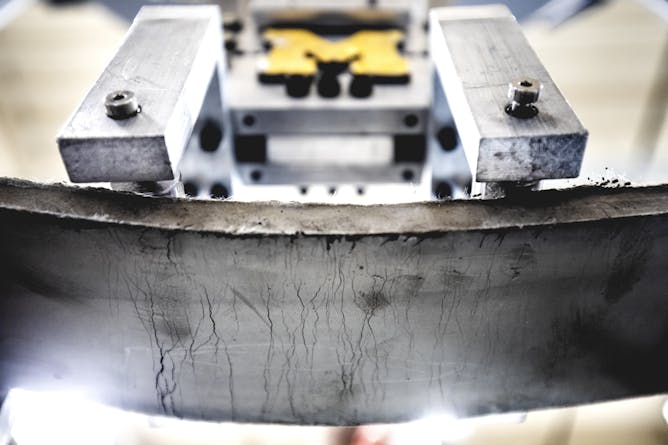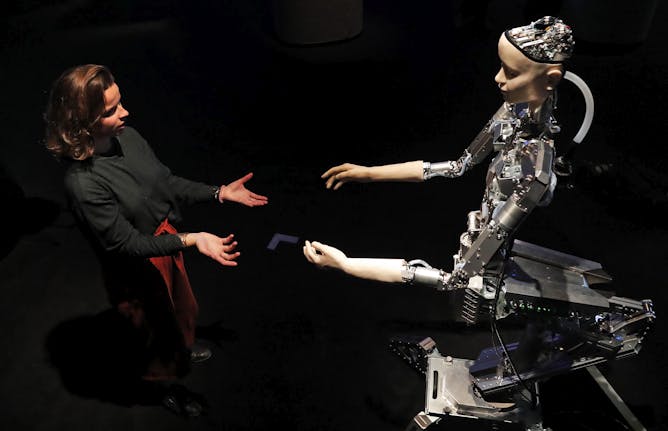|
Researchers are developing techniques to infuse CO2 into concrete. This process of “carbon curing” has the potential to substantially lower the carbon footprint of concrete and improve its strength and durability. But there need to be better ways to measure the full extent of carbon emissions from different curing methods, say researchers from the University of Michigan who have developed their own CO2-enhanced bendable concrete.
About 1 in 3 people with COVID-19 in the U.S. will have symptoms that last more than the typical two weeks. Why some people become COVID-19 “long-haulers” is one of the medical mysteries of the pandemic: Who is more likely to be left with a mix of symptoms such as fatigue, cognitive impairment (or brain fog) and difficulty breathing, for weeks and months after initially getting sick? Colorado State research scientist Stephanie LaVergne, who treats long-haul COVID-19 patients, says studies from other countries show patients have lingering lung and heart problems long after the initial bout of the disease.
Psychiatrists are studying how AI bots can improve mental health during the pandemic. Having a software program provide counseling to people is not so far-fetched, says University of Florida researcher Laken Brooks, since years of research shows they are effective at asking questions. Initial results indicate that this latest wave of chatbots can be therapeutic, although not a replacement for human therapists.
See our full list of the latest science and research news below.
And one final note: Many of you may be wondering how The Conversation handles coverage of the many “preprint” studies that have not been peer-reviewed, particularly those around COVID-19. My colleague Stephen Khan explains guidelines and processes for The Conversation editions around the world here.
|

Bendable concrete created at the University of Michigan allows for thinner structures with less need for steel reinforcement.
Joseph Xu/University of Michigan College of Engineering
Lucca Henrion, University of Michigan; Duo Zhang, University of Michigan; Victor C. Li, University of Michigan; Volker Sick, University of Michigan
Researchers are developing ways to lock captured CO2 into cement. It could help rebuild America’s crumbling infrastructure and deal with climate change at the same time.
|

Fatigue, brain fog, breathing problems and many other COVID-19 symptoms can persist for months.
Kyle Sparks via Getty Images
Stephanie LaVergne, Colorado State University
'Long COVID' – in which people have symptoms lasting more than a few weeks – is turning out to be very common. People hospitalized for COVID-19 are at highest risk, but they aren't alone.
|

AIs are no substitute for human contact, but they can diminish loneliness.
AP Photo/Frank Augstein
Laken Brooks, University of Florida
AI chatbots can provide mental health support for people who are isolated during the COVID-19 pandemic.
|